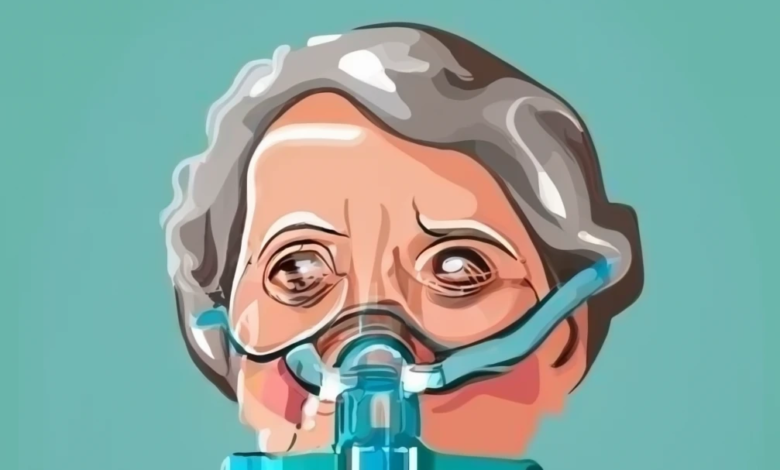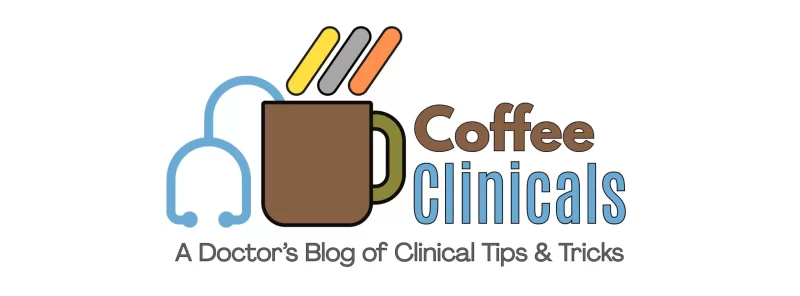
An early morning rapid response or code blue gets you more alert than coffee ever will 😉 That’s what happened one fine morning years ago when my pager beeped a rapid response alert on the pulmonary-acute unit. Made it to the bedside fast enough while sipping the last sips of my coffee.
This was an elderly lady placed on BiPAP device overnight for COPD exacerbation from pneumonia & sleep apnea history. Her oxygen saturation had dropped acutely that morning and was now needing a FiO2 of 70% (up from 40% overnight ). We switched her off BiPAP mask to a Non-rebreather mask. She was still sleepy from the night, in mild respiratory distress but following commands. . Lung sounds seemed mildly reduced on the right, but no stridor, wheezing or rales were heard. No vomitus was noted in mask & mouth, her dentures were on the table (dentures can sometimes get aspirated). Legs were without edema. Fingers were warm with good capillary refill & the finger pulse-oximeter monitor showed a good reliable O2 saturation tracing.
A Chest X-Ray showed improving pneumonia without new effusions or pneumothorax. Blood pressure was normal, Heart rate in 90s, no fever. Referring to our visual mnemonic to quickly recall causes of acute dyspnea / hypoxia – Could this be PE given the acuity Good thought, but with a normal blood pressure, Heart rate without acute elevation, lets keep this in the background and also think of other causes too before jumping to a Chest CT Angiogram. What else can a Chest Xray not see ? Yes- Mucous Plugs / thick secretions !!!
We had our Respiratory therapist thoroughly deep-suction her oropharyngeal cavity. Lo & Behold – a chunk of mucoid-looking sticky secretions was suctioned out & her oxygen saturation improved almost immediately. She was given chest physiotherapy and expectorants to help cough up more, her bedtime Benadryl was stopped and she was suctioned frequently. The BiPAP pressure had forced a thick blob of oral secretions down her throat! Luckily it was suctioned before it made it her deeper airways and saved her a Bronchoscopy. Thick secretions can have many causes, but be aware that they can also be a side-effect of CPAP / BiPAP devices.
💡 In any clinical situation, always rule out issues with easy fixes first to save time and money
💡 Our ‘Direction of pathology” based visual mnemonic is decent one to go over differential diagnosis quickly in the setting of acute respiratory distress
💡 Thick oral secretions can potentially be fatal . Besides good oral hygeine and suctioning , evaluate other causes to minimize risk of thick oral secretions.
Don’t miss these fun posts! Subscribe via email 📩 | |
